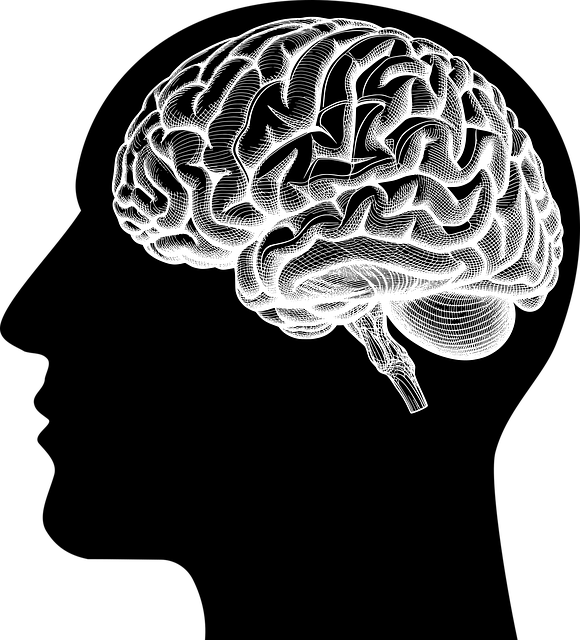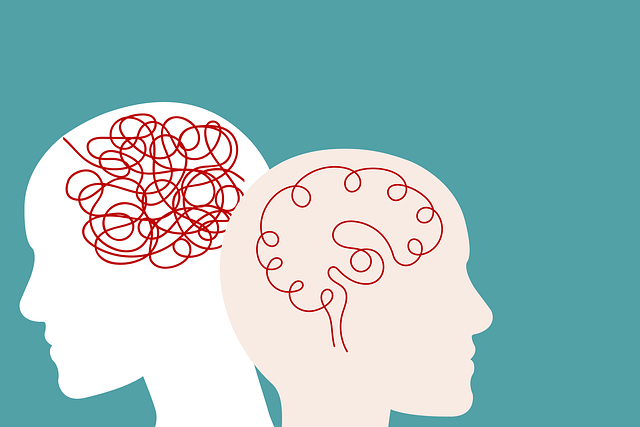Adolescent mental health is greatly influenced by gender identity, impacting teenage boys and girls navigating societal expectations vs personal sense of self. Therapy focused on gender identity development is crucial, offering safe spaces for professionals to guide young individuals in managing emotions, building inner strength, and adopting effective mood management strategies. Encouraging self-acceptance and challenging stereotypes are vital steps toward promoting mental wellness among this demographic. Skilled therapists with expertise in transgender issues conduct risk assessments, provide support throughout gender transitions, teach stress management techniques, build confidence, and foster authentic self-expression for positive outcomes. Open dialogue, normalizing diverse identities, and providing safe spaces by educators and families also contribute to mental wellness. Integrating therapy into support systems enhances depression prevention efforts, while public awareness campaigns reduce stigma, fostering an inclusive society that supports all adolescent teens' mental health.
Mental wellness promotion is a vital aspect of adolescent development, especially when addressing gender identity. This comprehensive article explores key areas critical to supporting teens navigating their gender transition. We delve into the understanding of adolescent mental health with a specific focus on gender identity, highlighting the transformative role of therapy. Additionally, we provide practical strategies for educators and families to foster resilience and self-acceptance, ensuring a supportive environment for all teen patients undergoing gender transition, with a particular emphasis on therapy for adolescent teens with gender identity concerns.
- Understanding Adolescent Mental Health: A Focus on Gender Identity
- The Role of Therapy in Supporting Teens Through Gender Transition
- Nurturing Resilience and Self-Acceptance: Strategies for Educators and Families
Understanding Adolescent Mental Health: A Focus on Gender Identity

Adolescent mental health is a complex landscape, with gender identity playing a significant role in shaping an individual’s overall well-being. For teenage boys and girls, understanding and embracing their unique identities can be transformative. Many adolescents struggle to reconcile societal expectations with their personal sense of self, especially when it diverges from traditional gender norms. This internal conflict can lead to anxiety, depression, and other mental health challenges.
Therapy for adolescent teens focusing on gender identity development is crucial in fostering inner strength and compassion cultivation practices. By creating safe spaces where they can express themselves freely, professionals can help young individuals navigate their emotions and develop effective mood management strategies. Encouraging self-acceptance and challenging societal stereotypes are essential steps towards promoting mental wellness in this demographic.
The Role of Therapy in Supporting Teens Through Gender Transition

Therapy plays a pivotal role in supporting teens navigating their gender transition, offering a safe space to explore and affirm their identities. For adolescent teens grappling with questions about their gender identity, therapy can provide much-needed guidance and support. Skilled therapists equipped with specialized knowledge in transgender issues conduct thorough risk assessments for mental health professionals, ensuring the teen’s well-being throughout the process. This assessment helps identify potential risks and challenges, allowing for proactive measures to be taken.
Through therapy sessions, teens gain valuable tools for stress management workshops organization, fostering a sense of confidence and self-acceptance. Therapists help them understand their feelings, provide validation, and offer strategies to navigate social pressures and family dynamics. By creating a non-judgmental environment, therapists enable teens to express themselves authentically, promoting positive mental wellness outcomes. This support is crucial in helping young individuals thrive during what can be a vulnerable and transformative period.
Nurturing Resilience and Self-Acceptance: Strategies for Educators and Families

Nurturing resilience and self-acceptance is paramount for adolescents navigating their emotional development and, particularly, those exploring their gender identity. Educators and families play a crucial role in fostering an environment that supports mental wellness. Strategies such as encouraging open dialogue, normalizing diverse identities, and providing safe spaces can significantly enhance a teen’s ability to cope with challenges related to self-perception and societal pressures.
By integrating therapy for adolescent teens focusing on gender identity into their support systems, educators and families can empower young individuals to develop effective mood management skills and combat depression prevention efforts. Public awareness campaigns development centered around these topics is also vital, as it broadens understanding and reduces stigma, ultimately contributing to a more inclusive and supportive societal landscape for all adolescents.
In promoting mental wellness among adolescents, especially those navigating their gender identity, a multifaceted approach is crucial. By understanding the unique challenges faced by teens exploring their gender, we can foster supportive environments. Therapy plays a vital role in providing safe spaces and guiding individuals through transitions. Additionally, educators and families have a significant impact by nurturing resilience and self-acceptance, ensuring young people feel seen, heard, and empowered. Together, these strategies can enhance the well-being of adolescent teens exploring their gender identity and provide them with the tools to thrive.














